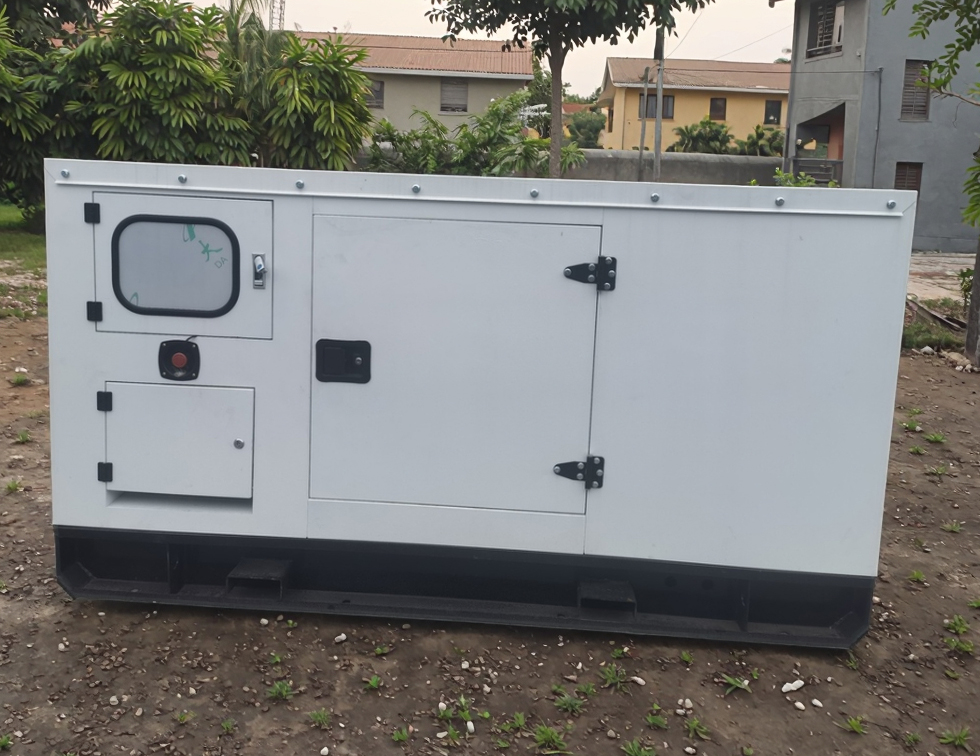Hybrid Power Solutions Combining Diesel Generators and Renewable Energy Are Redefining the Future of Electricity
Release time:2025-10-13 Click:18
As the global energy landscape shifts toward sustainability, hybrid power systems that merge diesel generators with renewable energy sources like solar and wind are gaining remarkable traction. These systems provide a balanced approach to energy generation — combining the dependability of diesel engines with the environmental benefits of renewables. For industries, remote sites, and off-grid regions, this blend is redefining how reliable and eco-friendly electricity is produced and consumed.
The Rising Demand for Hybrid Power Solutions
The increasing global demand for energy, combined with stricter carbon emission regulations, has accelerated the evolution of hybrid power systems. Traditional diesel generators are renowned for their reliability and robustness, yet their emissions and fuel dependency present sustainability challenges. By integrating renewable technologies such as solar panels or wind turbines, hybrid systems can significantly cut fuel consumption, minimize emissions, and reduce long-term operational costs.
In developing regions or construction sites where grid access is limited, hybrid power systems provide an immediate and cost-effective solution. They allow users to rely on renewable energy during peak production hours while maintaining diesel backup for continuous supply during low sunlight or wind periods.

How Diesel Generators Complement Renewable Energy
The fundamental strength of diesel generators lies in their ability to provide stable, on-demand power. However, renewables like solar and wind are intermittent by nature. When combined intelligently, diesel generators act as a stabilizing force in hybrid systems.
For example, in a solar-diesel hybrid microgrid, solar panels supply power during the day, and excess energy can be stored in batteries. When solar output drops at night or during cloudy conditions, the diesel generator automatically activates to maintain uninterrupted power. This ensures reliability while significantly reducing total diesel consumption.
Modern hybrid control systems use intelligent energy management software to monitor load demand and switch between energy sources seamlessly, maximizing efficiency and extending equipment lifespan.
Technological Innovations Driving Hybrid Integration
Recent advancements in digital monitoring, automation, and battery storage have made hybrid systems more efficient and user-friendly. Smart controllers can now analyze real-time data to determine optimal energy use, automatically adjusting generator output and renewable contribution.
Manufacturers such as Cummins, Perkins, and CAT are now offering diesel generators pre-configured for hybrid compatibility, allowing seamless connection with photovoltaic or wind systems. Additionally, the integration of lithium-ion batteries has improved energy storage efficiency, reducing dependence on diesel during low renewable output periods.
Another key innovation is remote monitoring technology. Operators can now track fuel usage, system performance, and maintenance needs through cloud platforms, ensuring maximum uptime and efficiency — even in isolated areas.
Advantages of Hybrid Diesel-Renewable Systems
Hybrid power solutions bring a host of advantages to both industrial and rural applications:
1. Reduced Fuel Costs – By relying partly on renewable sources, fuel consumption decreases substantially.
2. Lower Emissions – CO₂ output can be cut by up to 60%, aligning with environmental regulations.
3. Energy Security – Dual-source generation ensures power availability in any condition.
4. Extended Equipment Lifespan – Optimized operation reduces engine runtime and wear.
5. Scalability – Systems can be expanded easily as energy needs grow.
Real-World Applications of Hybrid Power
Hybrid power systems are increasingly used in remote locations such as island resorts, rural hospitals, and oil fields. Mining companies in Africa and Australia use hybrid diesel-solar systems to power their operations efficiently, minimizing downtime while meeting sustainability targets.
Similarly, humanitarian organizations deploy portable hybrid generators in disaster relief efforts, where rapid power restoration is critical. These solutions are not only more environmentally friendly but also logistically efficient, reducing the need for constant fuel deliveries.
Q&A: Common Questions About Hybrid Power Systems
Q1: What makes hybrid power systems better than traditional diesel-only setups?
A: They combine the reliability of diesel with the sustainability of renewables, reducing fuel costs, lowering emissions, and improving efficiency.
Q2: Can hybrid power solutions operate completely off-grid?
A: Yes, many are designed for off-grid use, using diesel only when renewable energy or battery storage is insufficient.
Q3: How difficult is it to maintain a hybrid generator system?
A: With modern control systems and remote monitoring, maintenance is straightforward, and diesel engine runtime is reduced.
Q4: Are hybrid systems suitable for small businesses or homes?
A: Absolutely. Scalable hybrid systems can power anything from homes to industrial complexes.
Q5: What is the payback period for a hybrid generator investment?
A: Depending on size and renewable availability, most achieve ROI within 3–6 years through fuel and maintenance savings.
The Future of Hybrid Energy Systems
As governments promote renewable incentives and carbon neutrality, hybrid power systems will continue to evolve. Integration with next-generation batteries and AI-driven energy management will further enhance efficiency and reliability.
In the long run, hybrid diesel-renewable systems are expected to dominate remote and industrial power generation, bridging today’s fossil systems and tomorrow’s renewable grid.
Conclusion
The combination of diesel generators and renewable energy represents a vital step toward global sustainability. Hybrid systems deliver what modern industries need most — consistent power, reduced emissions, and lower operational costs. As innovation continues, these systems will shape a cleaner and more resilient energy future.
Hot products
+86 15244567972
Contacts:Jack
